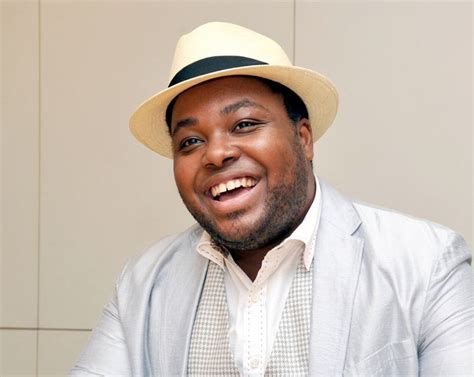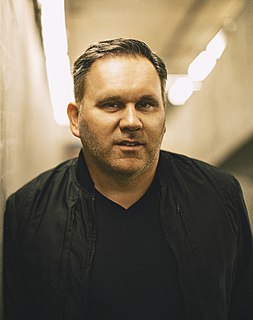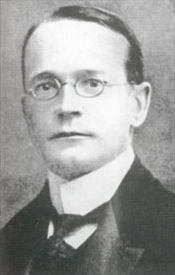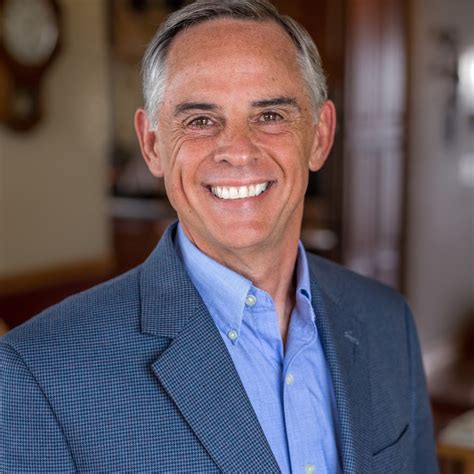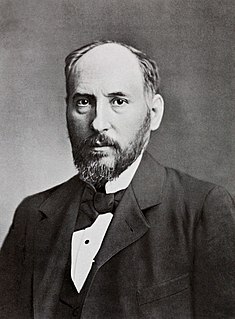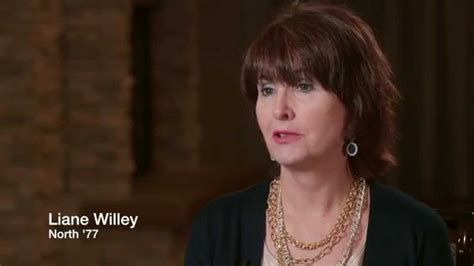Top 1082 Struggles Quotes & Sayings - Page 18
Explore popular Struggles quotes.
Last updated on April 16, 2025.
Around us, life bursts with miracles--a glass of water, a ray of sunshine, a leaf, a caterpillar, a flower, laughter, raindrops. If you live in awareness, it is easy to see miracles everywhere. Each human being is a multiplicity of miracles. Eyes that see thousands of colors, shapes, and forms; ears that hear a bee flying or a thunderclap; a brain that ponders a speck of dust as easily as the entire cosmos; a heart that beats in rhythm with the heartbeat of all beings. When we are tired and feel discouraged by life's daily struggles, we may not notice these miracles, but they are always there.
Advising the average person to not concern herself with calories but instead to pay attention to hunger triggers and eating foods rick in nutrients--well, it's a wonderful concept. I also love the thought of unicorns jumping over cotton candy rainbows. I'm even considering taking up basketball to see if it makes me taller. Come on already! Suggesting that someone who struggles with his weight does not need to think about calories is as risky as suggesting you not look at price tags the next time you're in the market for a car.
For me, life is about continuously being hungry. It's meaning is not simply to just exist or to survive, but to move ahead, to go up, to achieve, to conquer. Strength does not come from winning. Your struggles develop your strengths. When you go through hardships and decide not to surrender, that is strength. We all have great power. That power is self-faith. There's really an attitude to winning. You have to see yourself winning before you win. And you have to be hungry. You have to want to conquer.
A few more years shall roll,
A few more seasons come;
And we shall be with those that rest,
Asleep within the tomb.
A few more storms shall beat
On this wild rocky shore;
And we shall be where tempests cease,
And surges swell no more.
A few more struggles here,
A few more partings o'er,
A few more toils, a few more tears,
And we shall weep no more.
Then, O my Lord, prepare
My soul for that blest day;
Oh, wash me in Thy precious blood,
And take my sins away.
Absolutely. I think, I think the American people, at their core, are a decent people. I think that we still have prejudice in our midst, but I think that the vast majority of Americans are willing, are willing to judge people on the basis of their ideas and their character. And in the case of the presidency, I think what's most important is whether the American people think that you understand their hopes and dreams and struggles and whether they think you can actually help them achieve those hopes and dreams.
We each deal with childhood in different ways. That brothers and sisters can take the same lump of clay that is childhood and use it to shape themselves into unique human beings is a miracle in itself. Despite individual struggles, triumphs, joys and disappointments, someone is made of the same stuff and has been at your side, whether figuratively or literally, from the beginning. Use our brother and sister quote collection to explore this truth and gain compassionate understanding for yourself and your siblings.
Early on, I learnt from the Russian intelligentsia that the only meaning of life lies in conscious participation in the making of history. The more I think of that, the more deeply true it seems to be. It follows that one must range oneself actively against everything that diminishes man, and involve oneself in all struggles which tend to liberate and enlarge him. This categorical imperative is by no way lessened by the fact that such an involvement is inevitably soiled by error: it is a worse error merely to live for oneself, caught within traditions which are soiled by inhumanity.
The working classes in every country only learn to fight in the course of their struggles...Social democracy...is only the advance guard of the proletariat, a small piece of the total working masses; blood from their blood, and flesh from their flesh. Social democracy seeks and finds the ways, and particular slogans, of the workers' struggle only in the course of the development of this struggle, and gains directions for the way forward through this struggle alone.
I think a lot of women who are celebrities and who are very beautiful have terrible problems with their men being very controlling. Women allow themselves to be dominated and controlled by men in all sorts of other ways that are very complicated, you know? I don't really see a lot of women engaging in discussions about the struggles and power relations with men and their lives, like their bosses, boyfriends, husbands, coworkers. I don't see that happening very often, whereas I see a lot of misogyny on the internet. I see a lot of hatred towards women and a lot of fear of women.
It helps to regard soul as an active intelligence, forming and plotting each person's fate. Translators use "plot" to render the ancient Greek word mythos in English. The plots that entangle our souls and draw forth our characters are the great myths. That is why we need a sense of myth and knowledge of different myths to gain insight into our epic struggles, our misalliances, and our tragedies. Myths show the imaginative structures inside our messes, and our human characters can locate themselves against the background of the characters of myth.
I know about her, although she has never crossed my path," he said softly. "I know about her struggles and her defeats. It is because of her defeats that she is to me the lovely one. Out of her defeats she has been born a new quality in woman. I have a name for it. I call it Tandy. I made up the name when I was a true dreamer and before my body became vile. It is the quality of being strong to be loved. It is something men need from women and that they do not get.
The actions of bad men produce only temporary evil, the actions of good men only temporary good ; and eventually the good and the evil altogether subside, are neutralized by subsequent generations, absorbed by the incessant movements of future ages. But the discoveries of great men never leave us; they are immortal; they contain those eternal truths which survive the shock of empires, outlive the struggles of rival creeds, and witness the decay of successive religions.
Hidden in all good fortune is misfortune. And in all misfortune is good fortune. It's never going to stay the same as long you are in the world or unless you die while you are alive and become an enlightened Zen Master. But those people don't exist. When you study their lives, you find that they had the same struggles as the rest of us. It's not so much about being able to always have calm. Calmness isn't just the absence of noise or troubles. It's being able to find calm within yourself when other stuff is going on.
Step back in time; look closely at the child in the very arms of his mother; see the external world reflected for the first time in the yet unclear mirror of his understanding; study the first examples which strike his eyes; listen to the first words which arouse within him the slumbering power of thought; watch the first struggles which he has to undergo; only then will you comprehend the source of his prejudices, the habits, and the passions which are to rule his life. The entire man, so to speak, comes fully formed in the wrappings of his cradle.
Even though the play [ The Best Man] was written a long time ago, the characters seem modern and their struggles to make ends meet and to "have a little fun along the way" have a very contemporary feel. The similarity between the The Great Depression and The Great Recession - as well as the gulf between the super-rich and the ordinary Joe - still rings a bell. One of the things this production accentuates is how beautifully Grandpa and his family accept all kinds of people - rich or poor, black or white - and the best thing that can happen to you is to be part of a loving family.
Is not the real experience of each individual very limited? And, if a writer dwells upon that solely or principally, is he not in danger of repeating himself, and also of becoming an egotist? Then, too, imagination is a strong, restless faculty, which claims to be heard and exercised: are we to be quite deaf to her cry, and insensate to her struggles? When she shows us bright pictures, are we never to look at them, and try to reproduce them? And when she is eloquent, and speaks rapidly and urgently in our ear, are we not to write to her dictation?
If one is going to offer children stories that underneath the story must be something that will inform, stimulate and guide, I love to be on board. I think anything that resonates with history, as does The Jungle Book and Watership Down, reflects patterns of behavior, power struggles, deprivation, migration, survival, joy, love, betrayal, and all of these things. It's tragic that children are encouraged to ignore history. We ignore history and any literature that is historically based in history. Even though both of those films involved animals, of course they reflect human behavior.
This book was not written because I wanted to offer a supreme model to the man who struggles; I wanted to show him that he must not fear pain, temptation or death - because all three can be conquered, all three have already been conquered. Christ suffered pain, and since then pain has been sanctified. Temptation fought until the very last moment to lead him astray, and Temptation was defeated. Christ died on the Cross, and at that instant death was vanquished forever.
Does the open wound in another's breast soften the pain of the gaping wound in our own? Or does the blood which is welling from another man's side staunch that which is pouring from our own? Does the general anguish of our fellow creatures lessen our own private and particular anguish? No, no, each suffers on his own account, each struggles with his own grief, each sheds his own tears.
Our stories are not meant for everyone. Hearing them is a privilege, and we should always ask ourselves this before we share: "Who has earned the right to hear my story?" If we have one or two people in our lives who can sit with us and hold space for our shame stories, and love us for our strengths and struggles, we are incredibly lucky. If we have a friend, or small group of friends, or family who embraces our imperfections, vulnerabilities, and power, and fills us with a sense of belonging, we are incredibly lucky.
It's important to teach students about the reality of the system, that it is in fact the case that they are being targeted unfairly, that the rules have been set up in a way that authorize unfair treatment of them, and how difficult it is to challenge these laws in the courts. We need to teach them how our politics have changed in recent years, how there has been, in fact, a backlash. But we need to couple that information with stories of how people in the past have challenged these kinds of injustices, and the role that youth have played historically in those struggles.
When a patient says he feels stuck and confused, and through good intentions he struggles to become loose and clear, he only remains chronically trapped in the mire of his own stubbornness. If instead he will go with where he is, only then is there hope. If he will let himself get deeply into the experience of being stuck, only then will he reclaim that part of himself that is holding him. Only if he will give up trying to control his thinking, and let himself sink into his confusion, only then will things become clear. (64)
It must never be forgotten that nothing that is really great in this world has ever been achieved by coalitions, but that it has always been the success of a single victor. Coalition successes bear by the very nature of their origin the germ of future crumbling, in fact of the loss of what has already been achieved. Great, truly world-shaking revolutions of a spiritual nature are not even conceivable and realizable except as the titanic struggles of individual formations, never as enterprises of coalitions.
When we, believers, sing our songs of worship, not only do we praise God through them, but we preach to ourselves. As we sing the truth of who it is we're worshipping, as well as honoring God, it can be so helpful to us. Worship is about magnifying the right things. It can be so easy to let the struggles of this become all consuming, and we must not ignore them. But when we worship, instead of magnifying and focusing on those things, we magnify and focus on the name, the strength, the power, the grace of Jesus. When we do that, it puts everything into perspective.
People have learned by bitter experience that the "European fraternal union of peoples" cannot be achieved by mere phrases and pious wishes, but only by profound revolutions and bloody struggles; they have learned that the question is not that of a fraternal union of all European peoples under a single republican flag, but of an alliance of the revolutionary peoples against the counter-revolutionary peoples, an alliance which comes into being not on paper, but only on the battlefield.
Grace comes immediately to meet some of those who strive, giving them assurance of the earnest of their inheritance (cf. Eph. 1:14), letting them taste the promised prizes, as if stretching out a loving hand to welcome them and anointing them for further struggles. With others, however, grace waits for the end of the struggle, and prepares for them the crown of patience as well. As one of the God-bearing Fathers says, 'Some receive holy rewards before their labours, some during labours, and some when they depart' (St. John Climacus).
Obstacles are necessary for success because in selling, as in all careers of importance, victory comes only after many struggles and countless defeats. Yet each struggle, each defeat, sharpens your skills and strengths, your courage and your endurance, your ability and your confidence and thus each obstacle is a comrade-in-arms forcing you to become better... or quit. Each rebuff is an opportunity to move forward; turn away from them, avoid them, and you throw away your future.
The most widely discussed formulation of [the One World model] was the "end of history" thesis advanced by Francis Fukuyama. "We may be witnessing," Fukuyama argued, "the end of history as such: that is, the end point of mankind's ideological evolution and the universalization of Western liberal democracy as the final form of human government." The future will be devoted not to great exhilarating struggles over ideas but rather to resolving mundane economic and technical problems. And, he concluded rather sadly, it will all be rather boring.
When a monk goes away from the world, he goes fighting with it. it is not a relaxed going. His whole being is pulled towards the world. He struggles against it. He becomes divided. Half of his being is for the world and half has become greedy for the other. He is torn apart. A monk is basically a schizophrenic, a split person, divided into the lower and the higher. And the lower goes on pulling him, and the lower becomes more and more attractive the more it is repressed. And because he has not lived the lower, he cannot get into the higher.
Whether we're talking about the New Deal or the Great Society: they didn't come about because they wanted to buy people off with "hush money." They were the outcomes of struggles. They were the outcomes, in the 1930s, of a viable socialist-communist movement. They were the outcomes of a viable workers' movement. FDR didn't give in because he wanted to shut people up, he gave in because he was under pressure. He had no choice.
From their struggles to establish dominance over each other, siblings become tougher and more resilient. From their endless rough-housing with each other, they develop speed and agility. From their verbal sparring they learn the difference between being clever and being hurtful. From the normal irritations of living together, they learn how to assert themselves, defend themselves, compromise. And sometimes, from their envy of each other's special abilities they become inspired to work harder, persist and achieve.
My struggles have been around protecting our air quality, protecting people from mercury in fish. I was very involved in the effort to get the FDA to recognize that mercury in fish is a real health issue and the FDA, you know, needed to be on that. But they were very tight with the fishing industry and did not want the public to be aware in the same way that they later didn't want the public to be aware of the problems with Vioxx, and they sat on the studies for many years and allowed 140,000 people to develop heart disease.
Evolution throws a wonderful light on all the struggles, eccentricities, tortuous developments of the human conscience in the past. It is the only theory of morals that does. And evolution throws just as much light on the ethical and social struggle today; and it is the only theory that does. What a strange age ours is from the religious point of view! What a hopeless age from the philosopher's point of view! Yet it is a very good age, the best that ever was. No evolutionist is a pessimist.
No system can long command the loyalties of men and women which does not expect of them certain measures of discipline, and particularly self-discipline. The cost in comfort may be great. The sacrifice may be real. But this very demanding reality is the substance of which comes character and strength and nobility. Permissiveness never produced greatness. Integrity, loyalty, and strength are virtues whose sinews are developed through the struggles that go on within as we practice self-discipline under the demands of divinely spoken truth.
There are more ideas on earth than intellectuals imagine. And these ideas are more active, stronger, more resistant, more passionate than "politicians" think. We have to be there at the birth of ideas, the bursting outward of their force: not in books expressing them, but in events manifesting this force, in struggles carried on around ideas, for or against them. Ideas do not rule the world. But it is because the world has ideas (and because it constantly produces them) that it is not passively ruled by those who are its leaders or those who would like to teach it, once and for all, what it must think.
It's hard to say what makes the mind piece things together in a sudden lightning flash. I've come to hold the human spirit in the highest regard. Like the body, it struggles to repair itself. As cells fight off infection and conquer illness, the spirit, too, has remarkable resilience. It knows when it is harmed, and it knows she the harm is too much to bear. If it deems the injury too great, the spirit cocoons the wound, in the same fashion that the body forms a cyst around infection, until the time comes that it can deal with it.
Have you ever felt so at one with the world, with the universe, with everything that is, that you were overcome with love? That is reality. That is the truth. What we make of it is up to us, as the painting of the sunrise is up to the artist. In our world humanity has strayed from that love. It lives hatred and power struggles and manipulations of the earth itself for its own narrow reasons. Continue and no one will see the sunrise. The sunrise will always exist, of course, but people on earth will know nothing of it and finally even stories of its beauty will fade from our knowing.
Maketa Groves has a strong, bright lyric gift. Her poems come out of music and are full of music. They bring us the sounds of the streets and the sounds of nature, and make us see once again that they are parts of the same song. She celebrates American lives as they are lived today: the mother scrubbing her kitchen floor at midnight, the drag-queens in the Tenderloin, the homeless woman knitting in the courtyard. This is poetry that relentlessly shows us the beauty in the world, with all its struggles and complexity, and demands that we go out to meet it with open hearts.
It's the culture, not the blood. If you can go anywhere in the world and adopt these babies and put them into households that were already assimilated in America, those babies will grow up as American as any other baby with as much patriotism and love of country as any other baby. It's not about race. It's never been about race. In fact the struggles across this planet, we describe them as race, they're not race. They're culture based. It's a clash of culture, not the race. Sometimes that race is used as an identifier.
Stress is a choice. Do you buy that? Some people have a hard time with the idea. Yes, bad things happen: The economy sours, our business struggles, the stock market tumbles, jobs are lost, people around us don't follow through, deadlines are missed, projects fail, good people leave. Life is full of these. But still, stress is a choice because whatever the 'trigger event,' we always choose our own response. We choose to react angrily. We choose to stuff our emotions and keep quiet. We choose to worry. Stress is a choice.
The agricultural co-operative movement has been a severe ideological and political struggle from the very beginning. No cooperative can be established without going through such a struggle. Before a brand-new social system can be built on the site of the old, the site must be swept clean. Invariably, remnants of old ideas reflecting the old system remain in people's minds for a long time, and they do not easily give way. After a co-operative is established, it must go through many more struggles before it can be consolidated. Even then, the moment it relaxes its efforts it may collapse.
We hug, but there are no tears. For every awful thing that's been said and done, she is my sister. Parents die, daughters grow up and marry out, but sisters are for life. She is the only person left in the world who shares my memories of our childhood, our parents, our Shanghai, our struggles, our sorrows, and, yes, even our moments of happiness and triumph. My sister is the one person who truly knows me, as I know her. The last thing May says to me is 'When our hair is white, we'll still have our sister love.
Our faith in democracy, personal freedoms and human 'rights', and the other comforting prescriptions of the humanist liberal credo stem from the supremacy of maritime over territorial power. Pragmatists may deplore this as crude determinism, as another vain attempt to construct a general theory of history. They should reflect on the sort of political philosophy and structures we might now adhere to had the Habsburgs, Bourbons, Bonaparte, Hitler, Stalin or his heirs prevailed in the titanic world struggles of the past four centuries.
Yes, God loves you this very day and always. He is not waiting to love you until you have overcome your weaknesses and bad habits. He loves you today with a full understanding of your struggles. He is aware that you reach up to Him in heartfelt and hopeful prayer. He knows of the times you have held onto the fading light and believed-even in the midst of growing darkness. He knows of your sufferings. He knows of your remorse for the times you have fallen short or failed. And still He loves you.
How can we not believe in the greatness of America? How can we not do what is right and needed to preserve this last best hope of man on Earth? After all our struggles to restore America, to revive confidence in our country, hope for our future - after all our hard-won victories earned through the patience and courage of every citizen - we cannot, must not, and will not turn. We will finish our job. How could we do less? We're Americans.
It [the Civil War] was a heroic struggle; and, as is inevitable with all such struggles, it had also a dark and terrible side. Very much was done of good, and much also of evil; and, as was inevitable in such a period of revolution, often the same man did both good and evil. For our great good fortune as a nation, we, the people of the United States as a whole, can now afford to forget the evil, or, at least, to remember it without bitterness, and to fix our eyes with pride only on the good that was accomplished.
I didn't abandon my studies. Because I was, through no - clarify this. Through no particular genius of my own, I was the first person from Libertyville Public High School to attend Harvard, not because I was smarter than anyone or better than anyone, but no one had ever applied before. It was like University of Illinois, a fine institution, was the sort of the upper echelon of places where kids went from that school. And so I felt sort of a duty to myself and my peers to continue with those studies, and to continue to, intellectually arm myself for my coming struggles.
What we're thinking about is a peaceful planet. We're not thinking about anything else. We're not thinking about any kind of power. We're not thinking about any kind of struggles. We're not thinking about revolution or war or any of that. That's not what we want. Nobody wants to get hurt. Nobody wants to hurt anybody. We would all like to be able to live an uncluttered life. A simple life, a good life. And think about moving the whole human race ahead a step, or a few steps.
There's a tree that grows in Brooklyn. Some people call it the Tree of Heaven. No matter where its seed falls, it makes a tree which struggles to reach the sky. It grows in boarded-up lots and out of neglected rubbish heaps. It grows up out of cellar gratings. It is the only tree that grows out of cement. It grows lushly . . . survives without sun, water, and seemingly without earth. It would be considered beautiful except that there are too many of it.
Heroes and scholars represent the opposite extremes... The scholar struggles for the benefit of all humanity, sometimes to reduce physical effort, sometimes to reduce pain, and sometimes to postpone death, or at least render it more bearable. In contrast, the patriot sacrifices a rather substantial part of humanity for the sake of his own prestige. His statue is always erected on a pedestal of ruins and corpses... In contrast, all humanity crowns a scholar, love forms the pedestal of his statues, and his triumphs defy the desecration of time and the judgment of history.
There's another way to edit the sentence, which is to add a comma before the second 'which.' The survivor is struggling toward 'some resolution,' not a specific resolution that the mind may never find. The final clause is an appended thought, not a conclusion of the previous clause: 'Death ends a life, but it does not end a relationship, which struggles on in the survivor's mind toward some resolution, which it may never find.'
I knew that the black struggle wasn't my struggle. But I felt like it was my-struggle-adjacent, you know? I've always said that if you turn the dial in one direction, a Muslim is a Jew is an East Asian person is a Native American and so on. I feel very much that all of these struggles are kind of the same and - Hillary Clinton actually said this recently - when you get rid of one barrier, it opens up the gates for a whole bunch of people you didn't even know would benefit from it. So not fighting for the black struggle is like not fighting for the Muslim struggle.
Love is about bottomless empathy, born out of the heart’s revelation that another person is every bit as real as you are. And this is why love, as I understand it, is always specific. Trying to love all of humanity may be a worthy endeavor, but, in a funny way, it keeps the focus on the self, on the self’s own moral or spiritual well-being. Whereas, to love a specific person, and to identify with his or her struggles and joys as if they were your own, you have to surrender some of your self.
Exploring Feelings for Young Children with High-Functioning Autism or Asperger's Disorder: The STAMP Treatment Manual offers practical recommendations and creative practices that will certainly help young children with high functioning autism or Asperger's syndrome overcome their struggles with the really tough issues blocking their positive growth and development. Therapists, educators and parents caring for autistic children who endure a heavy load of anger, distrust, difficult interpersonal relationships, poor self-esteem and self-doubt need this excellent book.
It really has been a blessing because you can go and look at our other movies we've done in a studio system. We didn't get to make the movie that we wanted to make. We made the movie that someone else wanted us to make. That can be a little disheartening, a lot disheartening. While there have been struggles, it doesn't matter which table you're at because you're going to have obstacles, but I kind of like being able to make the movie that you want to make.
From the Crusades, to the Inquisition, to American politics--the name of Jesus had been hijacked as an ally in all kinds of power struggles. Since the beginning of time, the ignorant had always screamed the loudest, herding the unsuspecting masses and forcing them to do their bidding. They defended their worldly desires by citing Scripture they did not understand. They celebrated their intolerance as proof of their convictions. Now, after all these years, mankind had finally managed to utterly erode everything that had once been so beautiful about Jesus.
People say, "I have heart disease," not "I am heart disease." Somehow the presumption of a person's individuality is not compromised by those diagnostic labels. All the labels tell us is that the person has a specific challenge with which he or she struggles in a highly diverse life. But call someone "a schizophrenic" or "a borderline" and the shorthand has a way of closing the chapter on the person. It reduces a multifaceted human being to a diagnosis and lulls us into a false sense that those words tell us who the person is, rather than only telling us how the person suffers.
The man who boldly transgresses, amassing a great heap unjustly--by force, in time, he will strike his sail, when trouble seizes him as the yardarm is splintered. He calls on those who hear nothing and he struggles in the midst of the whirling waters. The god laughs at the hot-headed man, seeing him, who boasted that this would never happen, exhausted by distress without remedy and unable to surmount the cresting wave. He wrecks the happiness of his earlier life on the reef of Justice, and he perishes unwept, unseen.
What I'm trying to do is paint a picture of an atypical human being going through all of the existential struggles, but all the while realizing the carnality and small things, because I like minutiae a lot. All the while knowing that it's a forest - knowing that none of it means anything. I think if more people understood that, they would just go ahead and kill themselves like they're gonna do anyway, but do it quickly as opposed to hanging out and using up resources. Don't just sit around criticizing other people and wasting time. I do that, but I'm not really skilled in any other way.














